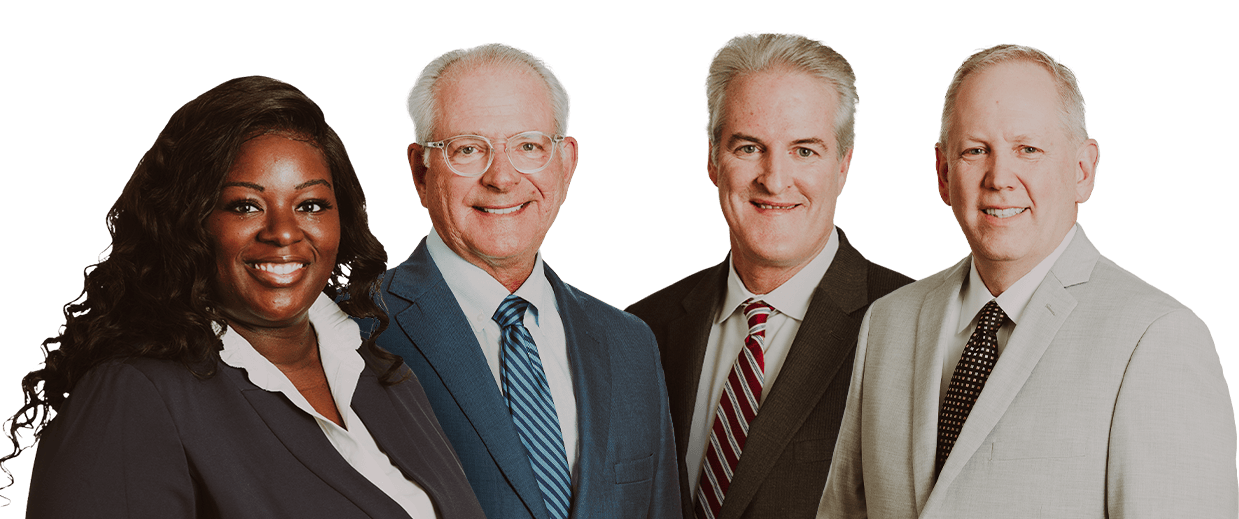Can I Be Compensated for Pre-Existing Conditions After a Car Accident?
Were you recently involved in a car crash in Clearwater, Fl? Insurance companies for at-fault drivers search for any reason to avoid paying a car accident claim. One argument an insurance adjuster may use to avoid paying an insurance claim is that you have a pre-existing condition.
Car accident cases may be more complicated when they involve pre-existing conditions. However, you can be compensated for pre-existing conditions after a car accident in specific circumstances.
Am I Entitled to Compensation for a Car Accident if I Have a Pre-Existing Condition?
Sometimes. A motor vehicle accident may aggravate a pre-existing condition. For example, if you sustained a prior head injury in a slip and fall accident, another head injury from a car crash could cause Second Impact Syndrome. You may experience chronic headaches, cognitive impairments, and other symptoms you did not have before the car crash.
Another example might be a rear-end accident causing a prior back injury to worsen. Before the car crash, you could work and only had minor back pain. Now, you suffer chronic back pain and limited mobility.
An insurance company may blame seizures on an epilepsy diagnosis instead of the traumatic brain injury you sustained in the crash. Before the crash, medication controlled your seizures. However, you have seizures regularly after the car crash, even though you take medication.
In the above cases, you suffered new harm because of the automobile accident. The crash aggravated an illness or injury. If not for the collision, you would not have sustained the new harm.
When an insurance company discovers a pre-existing condition, it argues that the pre-existing illness or injury is the cause of your current health condition instead of the car accident.
However, the eggshell skull rule argues that the at-fault party is responsible for damages caused when a car crash causes a pre-existing condition to worsen. Therefore, the at-fault party cannot avoid liability for damages solely based on a person being more susceptible to injury because of a pre-existing injury or illness. The eggshell skull rule would also apply to a wrongful death claim.
However, you have the burden of proving that the collision aggravated your pre-existing condition, thereby causing new symptoms and damages.
What is a Pre-Existing Condition?
A pre-existing condition is an illness, health condition, or prior injury that you had before your car crash.
Examples of pre-existing conditions insurance companies may target after a car crash include:
- Prior head injuries, including traumatic brain injury, concussions, and skull fractures
- Neck injuries, including whiplash
- Fractures and broken bones
- Back injuries and spinal cord injuries
- Fibromyalgia
- Degenerative disc disease
- History of seizures or epilepsy
- Diabetes
- Cancer
- Soft tissue injuries
- Heart conditions
- High blood pressure
- Migraines
The insurance company will claim that injuries or health conditions after a car accident result from a pre-existing condition. In other words, the insurance company refuses to pay damages by claiming the accident did not cause your injuries.
Proving that the car accident resulted in harm and damages are two necessary legal requirements for a negligence claim. If you cannot prove the car crash was the direct and proximate cause of your injury, you cannot recover compensation for damages.
Therefore, insurance companies aggressively search for proof of pre-existing conditions to limit their liability for car accident claims.
What Compensation for Pre-Existing Conditions Could I Receive After an Auto Accident?
If you prove that the car crash resulted in further harm by aggravating or worsening a pre-existing condition, you can seek compensation for damages such as:
- Medical bills
- Loss of benefits and income
- Pain and suffering damages
- Reduced future earning potential
- Loss of enjoyment of life
- Permanent disabilities and impairments
However, you cannot include damages related solely to the pre-existing condition. Instead, the damages must relate specifically to the new harm caused by aggravating a pre-existing injury or illness.
Therefore, valuing a personal injury claim involving a pre-existing condition can be challenging. Your legal team may consult medical experts and specialists to gather evidence proving that the car crash caused new harm.
Of course, the insurance company may hire its own expert witnesses. Their witnesses argue that your pre-existing condition is the cause of your new symptoms.
It may be more challenging to prove damages when the accident victim has a pre-existing condition. However, it is possible. Courts have ruled in favor of plaintiffs when they can prove their new symptoms are the direct result of the car crash.
Beware of Requests from the Insurance Company for Medical Records and Written Statements
A common way that insurance companies get information about pre-existing conditions is by requesting recorded and written statements from an accident victim. In some cases, a claims adjuster may question the person by telephone and ask about their medical history.
It is not in your best interest to discuss prior illnesses or injuries with an insurance adjuster. Therefore, avoid talking to the adjuster or making a statement until you consult with a Clearwater car accident lawyer. An accident attorney can advise you of your rights regarding compensation for pre-existing conditions.
Additionally, do not sign a HIPAA release or medical records authorization for the insurance company. Many of these forms give the insurance company access to your complete medical history.
Hiding a pre-existing condition can hurt your case. However, you do not want to give the insurance company access to all your medical records. Instead, allow your lawyer to address the pre-existing condition in the appropriate manner.
Is There a Deadline for Filing Personal Injury Cases Involving Pre-Existing Conditions?
The same statute of limitations would apply to car accident cases involving pre-existing conditions that apply to other car accident claims. The statute of limitations deadline was recently changed for most personal injury cases. A four-year deadline applies to accidents occurring before or on March 23rd, 2023; a two-year deadline applies instead to accidents taking place after that date. However, there are a few exceptions to this rule.
Because cases involving pre-existing conditions may take longer to resolve, it is best to hire a personal injury lawyer in Clearwater as soon as possible after a car accident.
What if the Insurance Company is Wrong About a Pre-Existing Condition?
Insurance companies are interested in one thing – avoiding liability for car accident claims. The companies do not make money by paying large settlements or jury verdicts.
Therefore, the insurance company may raise the issue of pre-existing conditions, even though your current injuries have nothing to do with a past medical condition or injury.
Do not believe an insurance adjuster who tells you that you are not entitled to recover compensation for a car accident because of a pre-existing condition.
Hire a reputable legal team with extensive experience handling insurance claims. Skilled personal injury attorneys understand how insurance companies operate and their tactics to avoid paying claims.

We treat you like family.
If you can’t come to us, we’ll come to you.
Representing Accident Victims in Tampa Bay since 1955



-
“Friendly knowledgeable and kept me informed about my case. Any offer, bill or question was readily answered. Would definitely recommend and refer people to Bryan Caulfield and his team!!”- Betty B.
-
“Mrs Bryant works her butt off to make sure you get what is do to you in medical and beyond! They won’t take your case if they don’t feel you haven’t been wronged.”- Christine R.
-
“Working with Mark Perenich on my auto injury case was an absolute game-changer. From the very beginning, he brought a level of professionalism, expertise, and care that immediately put us at ease.”- Kerry B.
-
“Lorrie and Allyson are phenomenal. I highly recommend them to anyone. It seemed like a never ending journey but I can’t thank them enough for diligently fighting my case with the greatest integrity, support and prayers.”- Former Client
-
“From the first day we met this law group I felt very comfortable and knew we would be well taken care of. This was our first experience filing for SSD, and was not disappointed. The lawyers are awesome and very professional.”- Shari J.
-
“Very nice they worked with you. Never ignored me with my case. Always on top to work with you. Thank you so much for all that you have done to help me! Very highly recommend.”- Margarita O.
-
“My appointed attorney was Jacqueline, Bryant. She is very compassionate about her client and work. When it comes to negotiation, she's a Beast and she gets the job done.”- Alaina J.
-
“What was particularly awe inspiring was the recall of facts and testimonies from medical personnel that Para Legal Ms. Josephine Elizabeth Angelo was able to make. Her memory and acumen for detail was admirable.”- Maylisa Y.
-
“Wonderful, impeccable, personalized, authentic, truthful, honest experience. Rare, real, and human firm.”- Sheryl G.


We’ve been proudly serving Clearwater, St. Petersburg, and the Tampa Bay area for generations. As the first personal injury law firm in Clearwater, our dedicated legal team brings over 300 years of combined experience to each and every case. If you’ve been injured and need support, please reach outtoday for a free consultation, we are here to help you.















